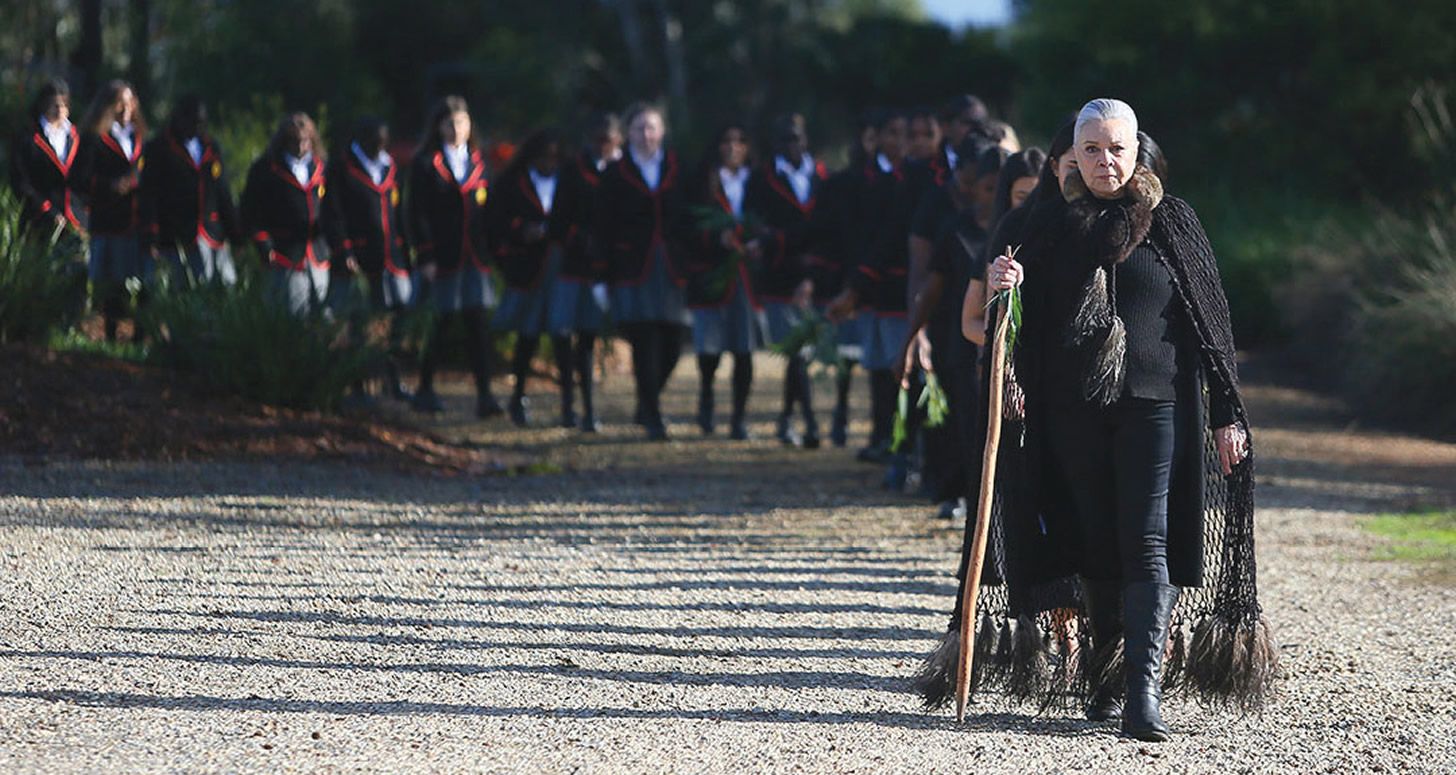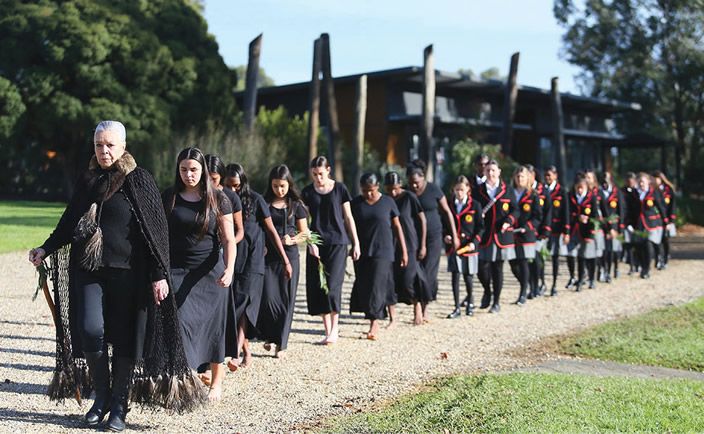Aboriginal Change Makers, a unique collaboration between the Victorian Parliament and Worawa Aboriginal College, prompts students to consider history through the eyes and experiences of Indigenous people who fought against long odds to keep their culture and language alive, Will Brodie writes.
The teaching resource, launched in early June by Worawa Principal and Executive Director Dr Lois Peeler and Speaker of the Victorian Legislative Assembly Colin Brooks, presents “amazing stories of political and social activity, self-determination, and empowerment, as well as the struggle for recognition in the face of another more dominant and colonising society”.
The course for students in Years 7 to 10 details life on Aboriginal missions, the removal of children from their families at age 15 to work as household or farm labour, and crusades for recognition and self-determination. Teachers and university teaching students will also be able to complete one-day training sessions at Worawa’s Healesville campus, and the Victorian Government will provide professional resources for teachers to make best use of the material in their classrooms.
Personal experiences
Aboriginal Change Makers gives accounts of the personal experiences of people who participated in historically significant events. It gives voice to the stories, remembrances, and experience of people who worked tirelessly to bring about change in the lives of Aboriginal people.
For so many of them, campaigning for Aboriginal liberation and recognition was “costly and dangerous”.
One such figure featured by Change Makers is William Cooper, an “early and relentless campaigner for Aboriginal rights” who founded National Aborigines Day in 1940, a precursor to NAIDOC Week.
“He began with a group for Aboriginal people: an organisation called Australian Aborigines’ League, and they were advocating for improved conditions for our people,” Dr Peeler said.
Cooper believed that Aboriginal people should be represented in parliament and petitioned King George V demanding the right to propose a member of parliament who directly represented Aboriginal people. Sound familiar? He obtained 1814 signatures. The Commonwealth refused to pass the petition to the King.
In 1938, Cooper led a delegation on behalf of the Aboriginal community to the German consulate in Canberra to deliver a letter which condemned the persecution of Jewish people on Kristallnacht by Germany’s Nazis.
“That was one of the amazing things, because our own people were going through this process of being discriminated against,” Dr Peeler said.
Education is the key to ending discrimination, says Dr Peeler. When we learn about ourselves, we begin to understand the need for social change.
“You don’t know what you don’t know”, she says.
True history
The mission statement for the program states: “It is our hope that non-Aboriginal students will begin to access the actual history of the past and a new understanding of what has created their own perspective so they can look at the past with clarity and the future with honesty.”
Dr Peeler hopes those who engage with Aboriginal Change Makers “will gain an understanding of their own perspective and a deeper appreciation of the incredible riches of Aboriginal cultures and recognition of the impact of colonialism on First Nations people of this land that would truly support our nation’s journey to reconciliation and healing”.
“I think these stories need to be told. These are people who have worked against the odds to make changes, often at great personal sacrifice.
“People often ask, ‘Why weren’t we taught (this)?’ These stories have been hidden; we’ve never been noticed as part of Australian history.
“Everybody is looking for this, now that we are advancing the ideas of the Statement from the Heart, of treaty, of self-determination, and we have to bring along the broader community.”
Dr Peeler believes projects like Change Makers “truly support our nation’s journey to healing and reconciliation” by helping Australians learn about the real history of our country.
“We are going through such a significant social change at the moment,” she said.
“We’re talking about acknowledgement of Aboriginal and Torres Strait Islander people as the First Nations people of Australia.
“That’s why it’s important to be able to provide resources so that this can be taught in schools.”
Worawa College, Victoria’s only Aboriginal-run school, was founded in 1983 by “visionary, poet, writer and philosopher” Hyllus Maris.
Indigenous education website deadlystory.com describes Worawa as “an Aboriginal community initiative … established on Aboriginal-owned land. It is governed by Aboriginal people. Students are from Aboriginal communities across Australia”.
Worawa welcomes First Nations girls from around the country, many of them from regional and remote communities. Some become the first people in their families to finish high school.
Holistic approach
The school offers a holistic program, integrating academic learning, health and wellbeing, and a celebration of culture – needs not previously met by other educational options.
Worawa filled that gap, but also countered mainstream curricula, which lacked any reference to Indigenous people who’d lived for 60,000 years in what became called Australia. It also lacked any positive stories about Aboriginal people.
“You can’t focus on your education unless you’re feeling right in your heart and in your head,” Dr Peeler said.
By fulfilling that fundamental need, Worawa’s holistic program has had a big impact on the lives of its students.









































































































































